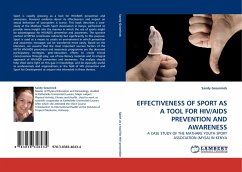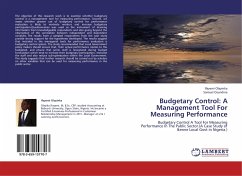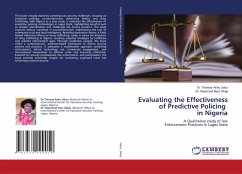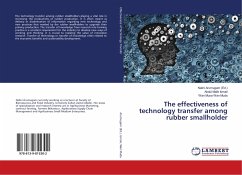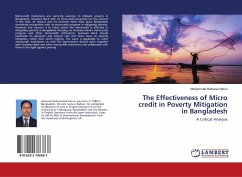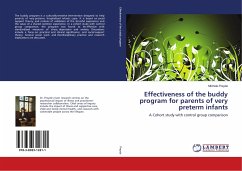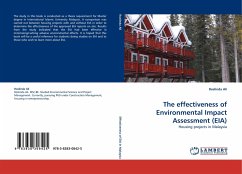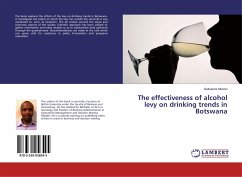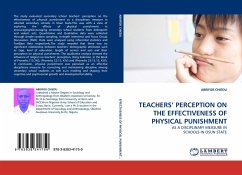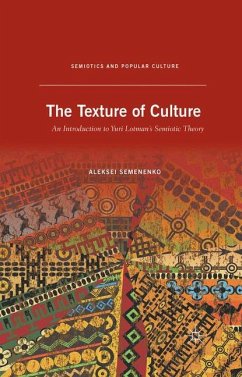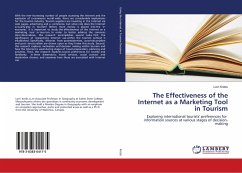
The Effectiveness of the Internet as a Marketing Tool in Tourism
Exploring international tourists' preferences for information sources at various stages of decision- making
Versandkostenfrei!
Versandfertig in 6-10 Tagen
45,99 €
inkl. MwSt.

PAYBACK Punkte
23 °P sammeln!
With the ever-increasing number of people accessing the Internet and the explosion of e-commerce world wide, there are considerable implications for the tourism industry. Tourism suppliers are investing in the Internet via web pages, advertising and e- commerce, but what role does the Internet actually play in tourism? Before more money is placed into the 'e-economy', it is important to study the effectiveness of the Internet as a marketing tool in tourism. In order to better address the concerns described above, this research accomplishes several tasks. First, the significance of researching ...
With the ever-increasing number of people accessing the Internet and the explosion of e-commerce world wide, there are considerable implications for the tourism industry. Tourism suppliers are investing in the Internet via web pages, advertising and e- commerce, but what role does the Internet actually play in tourism? Before more money is placed into the 'e-economy', it is important to study the effectiveness of the Internet as a marketing tool in tourism. In order to better address the concerns described above, this research accomplishes several tasks. First, the significance of researching Internet use within the tourism context is established. Specifically, theories from postmodernism, post-industrialism and post- structuralism are drawn upon as they frame this study. Second, this research explores motivation and decision making within tourism and how the Internet is used during stages of travel preparation, planning and activities. Third, this research explores tourist preferences for novelty and familiarity in three dimensions; travel services, social contact and destination choices, and examines how these are associated with Internet use.



